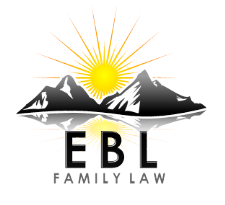Representing the Child
Let Your Child’s Voice Be Heard
During a divorce or separation, people often say, “My child is 13 years old. Can’t they pick which parent they want to live with?”
There is no definitive answer to this question.
In Alberta, there is no specified age when a child can choose for themselves with whom they wish to live. Children grow up and mature at different ages. Every child’s development is different, and each child’s ability to reason, make use of their vocabulary, and make mature decisions, is different.
This is not to say that a child does not have a voice in Court proceedings. Sometimes when a child is close to the age of majority (i.e. 18 years old in Alberta), the Court may hear directly from the child.
Other options for the Court to hear from the child include obtaining a Practice Note 7 Intervention: Voice of the Child Report, and obtaining counsel for the child. It is important to note that the Court will not necessarily do whatever the child wants. It is the Court’s responsibility to do what is in the child’s best interest.
VOICE OF THE CHILD
A Practice Note 7 Intervention is a tool developed by the Courts of Alberta to assist in the litigation process, recognizing that it is in the best interests of the children that families in high conflict have quick and effective intervention. A Practice Note 7 is intended to be used where:
- The family is in a state of high conflict;
- The intervention of the Court is required; and
- The Court requires the assistance of Parenting Experts.
Under a Practice Note 7, the Parenting Expert is not there to provide recommendations, but rather to evaluate, provide observations, and describe what is happening with the family and the children to the Court. They may also be involved in a therapeutic role, to help the family work towards a resolution and/or manage conflict.
Using a Practice Note 7: Voice of the Child Intervention, involves engaging a Parenting Expert to canvass the needs and/or wishes of the children. The Parenting Expert will interview each parent and each child separately to identify any special needs or risks. Based on the interviews, the Parenting Expert will usually put his/her observations into a report for the Court, detailing specifically what the child has said.
The problem with these sorts of reports, especially when they are done on younger children, is that the child’s views of the world can change on a daily basis. What the Parenting Expert reports one day, may not necessarily be the child’s feelings the day after.
A Parenting Expert conducting a Practice Note 7: Voice of the Child Intervention does not align him or herself with either parent. They are an impartial observer who is meant to act as a “friend of the Court” and merely relay the thoughts, feelings, and opinions of the child.
COUNSEL FOR THE CHILD
To obtain counsel for your child, you must either:
- Obtain the consent of the other parent to get a lawyer for your child; or
- Obtain an Order from the Court allowing you to get a lawyer for your child.
Once you have permission to obtain counsel for your child, you may either privately retain a lawyer, or, depending upon your circumstance, you may qualify for a lawyer through the Children’s Legal and Educational Resource Centre (CLERC) or Legal Aid. In Alberta, the Office of the Child and Youth Advocate provides a service called Legal Representation for Children and Youth (“LRCY”). LRCY provides lawyers at no cost to children who are the subject of or somehow part of an application under the Child, Youth and Family Enhancement Act, the Protection of Sexually Exploited Children Act, or the Protection Against Family Violence Act.
EBL frequently acts as counsel for the child, through private retainers, Legal Aid, and LRCY.
There are three possible roles that counsel for the child can play:
- Friend of the Court;
- Best interests guardian; or
- Advocate.
As a friend of the Court, counsel for the child’s duty is to ensure all relevant evidence has been presented to the Court. In this role, counsel will discuss the child’s opinions, views, and wishes; but will not take a position or argue on behalf of the child. There is no duty of confidentiality in this role.
As a best interests guardian, counsel for the child’s duty remains to ensure all relevant evidence has been presented to the Court. In this role, counsel will discuss the child’s opinions, views, and wishes. The lawyer will also take a position and argue on behalf of the child in what the lawyer believes to be the child’s best interests. There is no duty of confidentiality in this role.
As an advocate, counsel for the child treats the child as if the child were an adult. This means that the lawyer has the same professional and ethical duties and responsibilities as they would have with any adult client, including the duty of confidentiality. As a result, anything the child says to the lawyer will not be communicated to the Court without first obtaining the child’s permission. Counsel will take a position and argue on behalf of the child in accordance with the child’s opinions, views, and wishes, and not necessarily argue what is the child’s best interest.
The Law Society of Alberta has developed policies requiring counsel for the child to act as an advocate whenever possible.
To learn more about having your child’s voice heard before the Courts, contact our office for a flat rate consultation at 587-440-3070.

